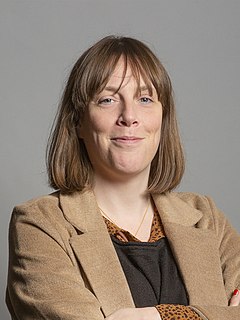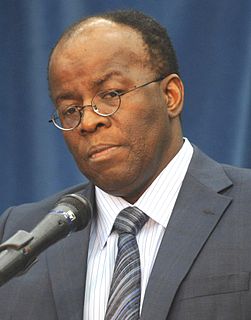A Quote by Steven Pinker
People today sometimes get uncomfortable with empirical claims that seem to clash with their political assumptions, often because they haven't given much thought to the connections.
Related Quotes
We don't have a great clash of civilizations, a clash of ideologies, a clash of alternative models, where governments thought to themselves, if we go too far, if we sort of trample unreasonably on rights, we'll give birth to a political movement which will cost us our credibility, and will possibly cost us our offices, because people will vote for the other team, the other guys.
Discerning the merits of competing claims is where the empirical basis of science should play a role. I cannot stress often enough that what science is all about is not proving things to be true but proving them to be false. What fails the test of empirical reality, as determined by observation and experiment, gets thrown out like yesterday's newspaper.
I'M INTROSPECTIVE, because sometimes I want to take "our" side without looking at the facts in situations like these. Sometimes I feel like it's us against them. Sometimes I'm just as prejudiced as people I point fingers at. And that's not right. How can I look at white skin and make assumptions but not want assumptions made about me? That's not right.
Because I sometimes shopped in Waitrose, I thought I was actually quite posh. I've realised that I'm basically a scullery maid. Even the middle-class people who I meet in parliament, people who live in London - which I think is remarkable because how can anybody afford to live there - seem much, much more middle class than me.
I've been offered political shows before, and I don't know anything about politics and I feel uncomfortable making political opinions - there's consequences to them. I often think I'm wrong, so I really don't like getting in political or religious discussions because of the giant possibility that I might be wrong.
I've always thought that I'm not really a guitar player, but I just practised so much that I developed into a kind of a bit of a musician, but I've often doubted my musical ear. If someone sings me a melody, I have to improvise on that melody, because I can't retain the information they've given me. That's why I still practise today, I suppose, because I still feel inadequate.
There are several dozen political prisoners in Russia. When I cite that number people are often very surprised. They often think there are more. Well - there are hundreds of thousands of people who haven't had a fair trial, who are victims of the political system. But in the Amnesty International sense of the word, most of them are not political prisoners because they are not going to prison for protesting.
The trouble today is that many Christians live in a kind of bubble of assumptions about what their Christianity means, especially if it places them comfortably among "the good guys," - assumptions that are likely to be drawn as much from folk-Christianity, surrounding political culture, popular pulp-books about the "End Times," or their favourite guru writer or therapist, than from sober and comprehensive reading of the Bible as a whole. Prophets and preachers have the unwelcome task of pricking that bubble with the sharpness of actual texts and teachings of the Bible itself.
Actually, I never thought of me being president of Brazil. First of all, I'm not a politician. I never have been, and I think I'm a very unlikely person for this kind of job because of my frankness. I've never dealt with political parties. I have no connections with political parties. So, I don't think so.




































